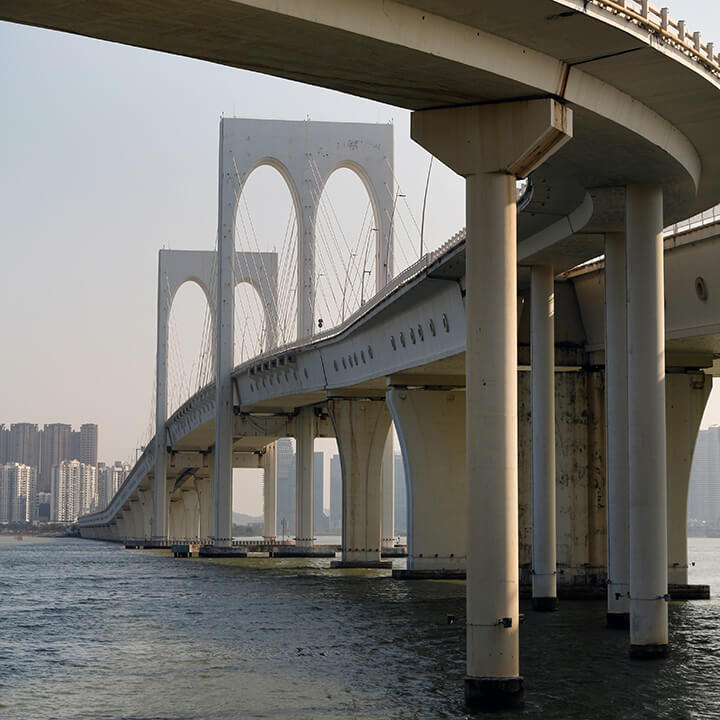Water crisis: What businesses need to know
16th May 2023
Walker Morris Partner and Infrastructure & Energy expert Ben Sheppard discusses the global water crisis. He explains the outcomes of the recent UN Water Conference, and considers how the water crisis can impact businesses from all sectors.

An overview of the global water crisis
Concerns regarding access to water are not new. According to the World Health Organisation, 40% of the global population is affected by water scarcity and 700 million people are at risk of displacement as a result of drought by 2030 [1].
The global water crisis is the result of a ‘melting pot’ of various factors: worldwide population and industrial growth; significant increases in water usage and demand; fresh water supply depletion as a result of economic development and climate change; degradation of water infrastructure as a result of long-term lack of maintenance and investment; and geographical and political factors.
The risks associated with the water crisis are varied and serious. ‘Water wars’ and related conflicts and large-scale migrations are a very real possibility, especially where countries are dependent on water sources that originate outside of their territory. Whilst it may not seem like an immediate pressing concern for some countries or industries, water shortages can limit production, disrupt supply chains, lead to conflict with other water users or commercial parties, and harm corporate reputations. Water infrastructure and scarcity issues underpin several of the 10 key global risks facing businesses as determined by the World Economic Forum’s Global Risks Report 2023. In January 2023, Time Magazine placed water stress as a top 10 global risk alongside issues such as ‘rogue Russia’, the drive for increased state control in China, inflation and the energy crisis.
In 2020 the Department for Environment, Food and Rural Affairs (DEFRA) reported that water demand could outstrip supply in the UK by 2050. The UN estimates this could happen by 2030. A 2022 Water Action Agenda concept note noted that Sustainable Development Goal 6 [2] of the UN’s 2030 Agenda for Sustainable Development is “alarmingly off track”.
The Water Action Agenda: A global response
The UN’s Water Conference 2023 took place in March. It was the first UN Water Conference in almost 50 years. As well as raising awareness, a key outcome was the adoption of the Water Action Agenda, a culmination of over 700 commitments focused on the shift from a global water crisis to a water-secure world. Commitments were made by nations, the private sector and non-governmental organisations. They include, for example, Denmark’s commitment to provide more than USD 400 million to enhance transboundary water management and development in Africa; the US’s promises to invest up to USD 49 billion for climate-resilient water and sanitation infrastructure and services, and to allocate USD 700 million to support 22 countries under its Global Water Strategy; and the Asian Development Bank’s commitments to invest USD 11 billion in the water sector in Asia and the Pacific, and USD 100 billion to water globally, by 2030.
Potential commercial implications of the water crisis
If not quickly and effectively addressed, the water crisis is likely to significantly impact global agricultural and industrial processes and production, contributing to food and energy shortages and further supply chain disruption. Poor water infrastructure is already leading to wasted water, higher bills and commercial disruption. Water issues are expected to rise up the sustainability and Environmental, Social and Governance (ESG) agenda [3]. Business may therefore, see growing emphasis on water action and responsibility in corporate reporting requirements, investor preferences and consumer choice.
By investing time and resources to identify key contracts and areas of reliance on water, on water infrastructure and/or on suppliers who are themselves particularly vulnerable to water scarcity and security, businesses can take practical steps to address risks in their markets and supply chains.
Businesses can improve their approach to water management. A good start is to be aware of water consumption, reduce instances of over use and avoid clean water waste and leakages. Businesses undertaking agricultural or industrial processes or otherwise dealing with water contaminants can take steps to minimise or prevent contamination of natural resources.
As water become more prominent in the ESG landscape it will increasingly factor in a business’s sustainability credentials and therefore consumer opinion. A recent survey carried out in the US [4] found that 78% of consumers were more likely to buy a product if it had sustainability credentials; that 75% of millennials would pay more for a green product; and that 76% of people would even switch from a preferred brand for sustainability.
Water issues and infrastructure: How we can help businesses
Walker Morris is a multi-disciplinary commercial law firm, with specialist lawyers experienced in Infrastructure and Energy, commercial contracts, corporate- and climate- reporting, and all other aspects of the water crisis/ESG agenda. We can work with businesses at every step of their journey to create, implement and deliver an effective water sustainability strategy. In particular, we can:
- Help businesses with climate and water monitoring and reporting, including measuring water- and other sustainability- related risks
- Undertake audits and contract reviews and draft/update policies, procedures and contracts from a water sustainability perspective
- Keep clients up-to-date on legal and regulatory developments associated with the water crisis and sustainability/ESG more generally
- Help clients to secure ‘green finance’ or other responsible investments
- Provide commercially-focused, cross-disciplinary advice and transactional assistance in relation to any aspect of the water sustainability agenda
- Provide risk management and effective dispute resolution strategies if/when any water infrastructure or sustainability issues do arise.
For further information or tailored advice, please contact Ben Sheppard.
[1] Sources: World Health Organisation, United Nations (UN)
[2] i.e. clean water and sanitation for all
[3] See Walker Morris’ earlier briefing: A practical approach to addressing ESG challenges
[4] the GreenPrint Business of Sustainability Index










